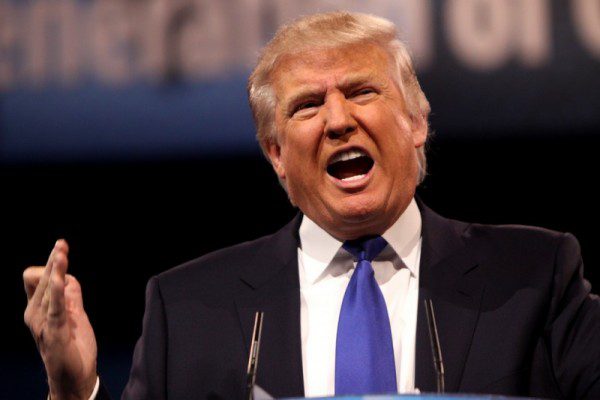
The demise of an alliance in Ancient Greece warns of the dangers of angering our partners in NATO.
The headlines were withering. “Trump’s Trip Was a Catastrophe,” The Atlantic declared; “Trump’s behavior at NATO is a national embarrassment,” proclaimed the Washington Post; “President Trump Fails NATO,” the New York Times lamented.
The behavior that spurred these headlines was painfully visible on May 25 as President Donald Trump attended a summit meeting of the NATO alliance in Brussels. NATO, a collective defense organization originally organized to resist Soviet expansionism, has been a critical pillar of American foreign policy since the 1940s, and Trump was expected to champion its strength and resiliency.
Unfortunately, he did anything but.
Where to start? First, spectators watched in horror as Trump manhandled the prime minister of the newest NATO member, Montenegro, and then puffed out his chest like an orangutan in rut:
Then, the public engaged in a face-palm heard ‘round the world as Trump lectured NATO members on “paying” nonexistent dues to the organization:
Next, we all performed a collective eye-roll as Trump attempted to tear French President Emanuel Macron’s arm from his body:
Finally, we all sighed in exasperation as Trump failed to do the one thing that he needed to do – assure our NATO allies of our commitment to defend them if attacked:
President Trump refused to endorse Article 5, which states that an attack on any NATO member is an attack on all https://t.co/42McntHdll
— The New York Times (@nytimes) May 25, 2017
All in all, Trump engaged in truly boorish behavior during the meeting, basically “giving the finger” to our crucial European allies. And while Trump might think that his behavior was a projection of strength, showing the world that America means business, he would do well to learn from the failures of Ancient Athens by apologizing for his actions at the NATO summit and adopting a more conciliatory tone with NATO members in the future.
In the 5th century B.C.E., a collection of Greek city-states formed an alliance called the Delian League. Assembled to confront threats to both Greece and its colonies in Asia Minor, the League pooled the resources of as many as 330 Greek principalities to assemble a military capable of withstanding the massive armies of the Achaemenid Empire (also known as the Persians). History shows that this partnership served its purpose – after the devastating Persian invasions of the 490s and 480s, the League deterred the Achaemenids from further efforts to subjugate the Hellenic peoples.
But while the Delian League guaranteed Greece freedom from the Persian yoke, the manner in which it was run would lay the groundwork for future conflict. Although a union of supposedly co-equal city-states, the League was unquestionably “ruled” by the city of Athens, which boasted the largest navy of any of its peers. As time wore on, Athens began to see itself less as an altruistic protector of Greek independence and more as a self-interested hegemon seeking dominance over its less powerful neighbors. This view manifested itself in Athens bullying the other members of the League, treating them as vassal states rather than as independent city-states.
Athens’s bullying would come back to haunt it. Whereas League members had been content to follow Athens leadership when it played the role of benevolent overlord, as Athens began to treat the alliance as a sort of protection racket, city-states began to balk at its leadership. Some sought to withdraw from the League, while others, when Athens faced threats from the rival city-state of Sparta, failed to come to the aide of their “ally” and revolted against its leadership. In the end, when Athens’s mighty fleet was destroyed and ruthless Spartan forces stood outside its famous Long Walls, Athens had few friends it could turn to in its hour of need – it was forced to capitulate to Sparta.
Given the sobering history of the Delian League, Trump would do well to rethink his approach to the trans-Atlantic alliance. While Europe has largely been happy with NATO over the past 70 years (with some notable exceptions), if Trump continues humiliating its leaders and acting like some sort of Nero-esque emperor, the European public may soon start to sour on America. Such discontent could manifest itself in new European leaders who might be reticent in coming to America’s aid in future conflicts. In the long run, European resentment at Trump’s imperious behavior could even lead to the end of NATO.
NATO occupies an essential place in America’s foreign policy, but, as with the Delian League, domineering behavior from its preeminent member (the United States) could lead to its dissolution. In an increasingly dangerous and chaotic world, America needs all the friends it can get. To ensure that NATO members stay happy with the trans-Atlantic alliance, Trump should apologize for his juvenile behavior at the NATO summit and adopt a more cautious, humble tone in future interactions with NATO members. Otherwise, the fate of Ancient Athens may one day be shared by 21st-century America.












